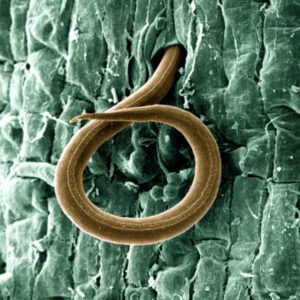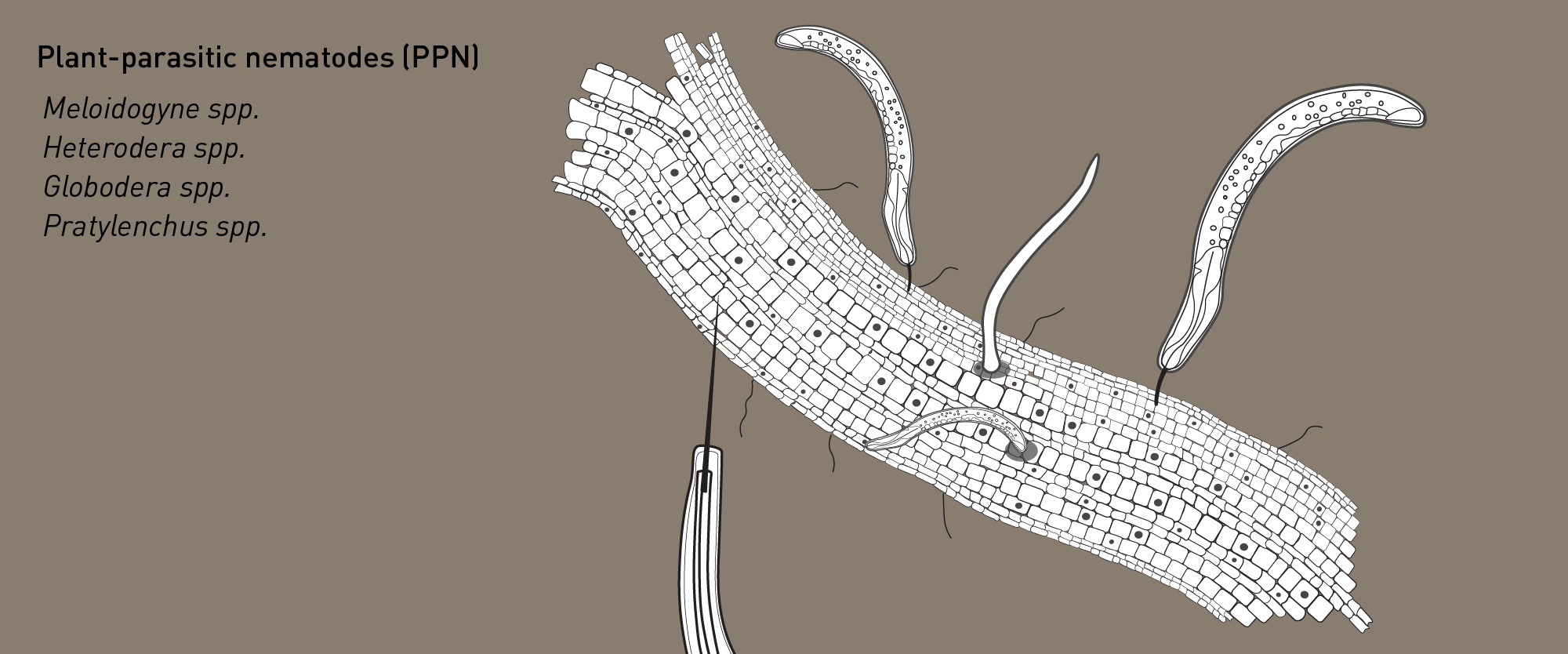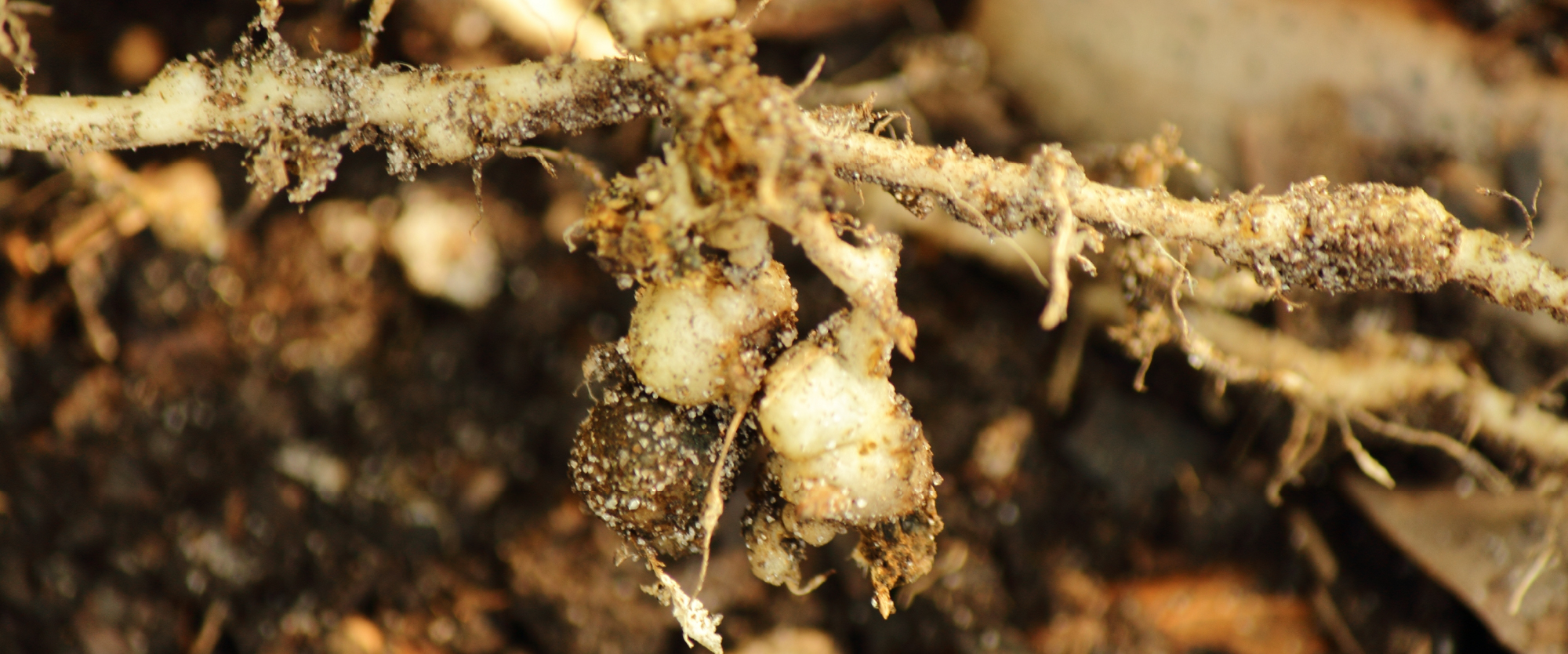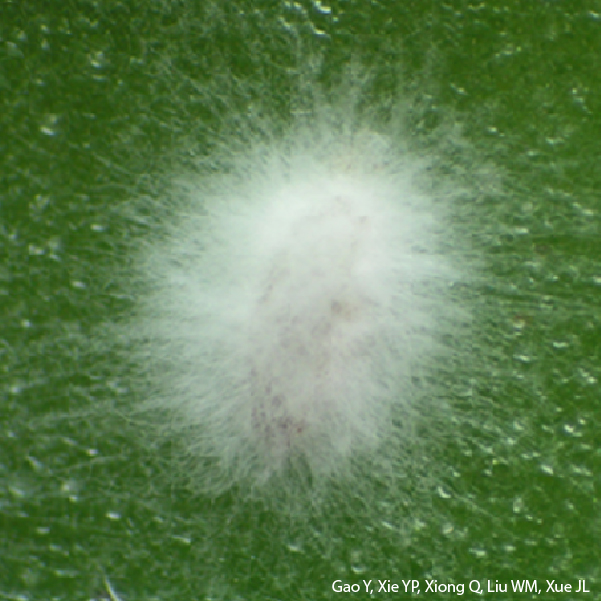The plant-parasitic nematodes are soil-dwelling pests that feed from the roots of a host plant, although some also feed on the upper parts of plants in flowers, seeds or shoot tissues. Using their stylet (a hollow, needle-like protrusion), they probe the plant tissue and release secretions that compromises the integrity of the host cell, allowing the nematode entry. Some plant-parasitic nematodes invade the plant cells (endoparasitic) while others remain outside the host cells (ectoparasitic). These nematodes infect a variety of economically important crops such as rice, wheat, maize, soybean, potato, tomato, and sugar beet.
Damage
Below-ground symptoms of PPN infection can be the formation of root galls (although not in all species); however visible above-ground symptoms are moisture and nutrient deficiencies of the leaves (necrosis, chlorosis) leading to stunted and patchy growth, as well as wilting. These deficiencies create a predisposition to various pathogenic fungi and viruses.
There are specific suitable solutions and integrated pest management strategies for combating different species of nematodes.
For more information contact your local BioBee field agent.





